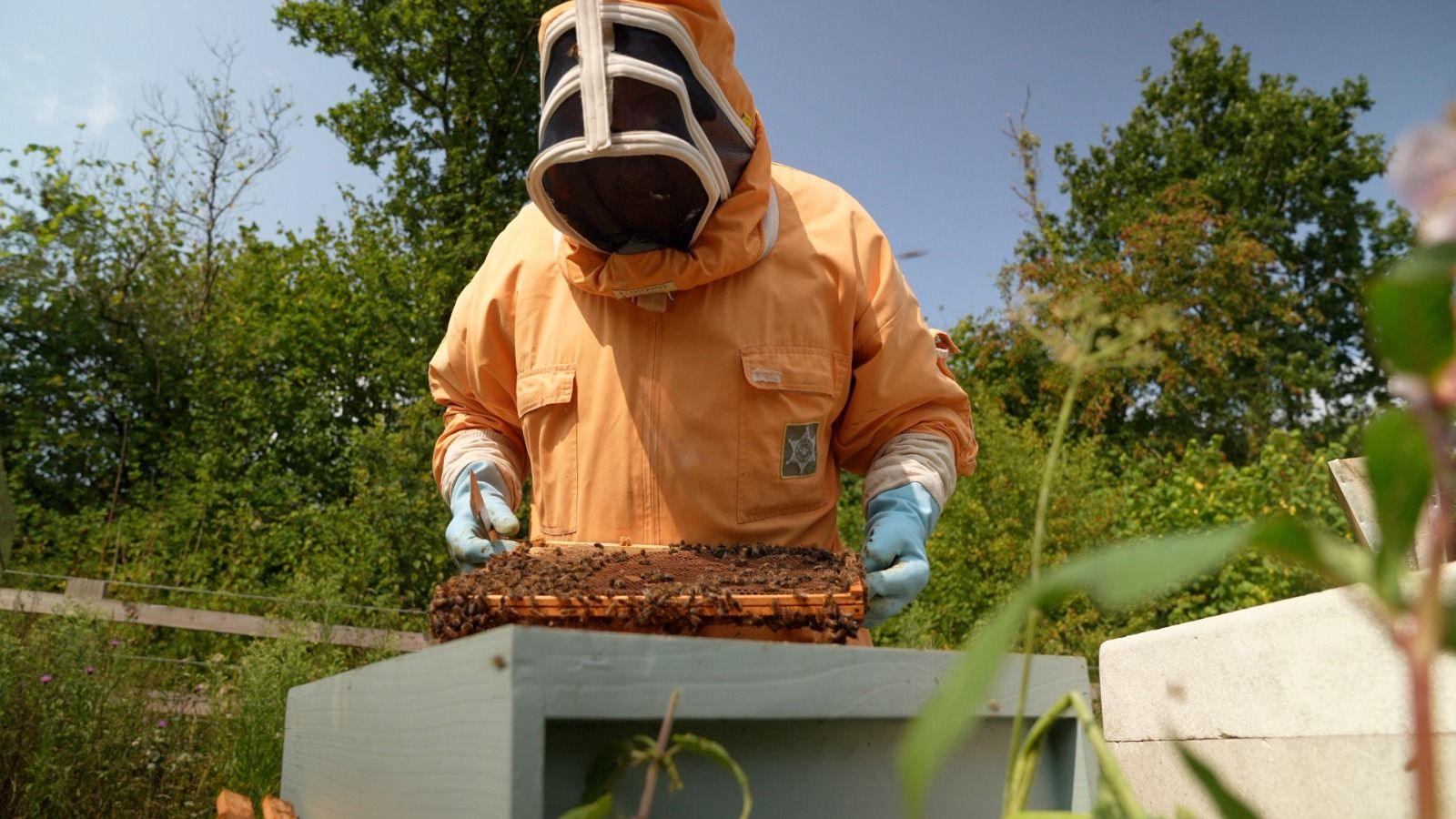In a groundbreaking development that could play a vital role in preserving global ecosystems, a team of researchers has created a specialized food supplement designed to enhance the health and survival of honeybees. This innovation comes at a time when bee populations around the world are facing severe declines due to factors such as habitat loss, pesticide exposure, climate change, and the spread of harmful pathogens. The new formulation, which is being referred to as a “superfood” for bees, aims to provide essential nutrients that bolster their immune systems and overall resilience.
Honeybees are essential pollinators, responsible for fertilizing a significant portion of the crops humans consume daily. Their role in agriculture and natural ecosystems is critical, as they ensure the reproduction of numerous plant species. However, in recent decades, scientists and environmentalists have sounded the alarm over the sharp decrease in bee populations, a phenomenon known as colony collapse disorder. Without immediate and effective interventions, the reduction in pollinator numbers could lead to devastating consequences for food security and biodiversity.
The newly developed supplement offers a potential solution to this growing crisis. Unlike standard sugar-based feeds traditionally provided to bees in managed hives, this enhanced formula contains a rich blend of proteins, vitamins, minerals, and bioactive compounds specifically chosen to meet the nutritional needs of honeybees. These components are intended to mimic the benefits bees naturally derive from pollen, which is often scarce during certain seasons or in regions affected by environmental degradation.
One essential element of this advancement is its emphasis on enhancing bee resistance. In recent times, bee populations have grown more susceptible to viruses, fungal diseases, and parasites like the Varroa mite, a significant cause of hive losses globally. Scientists aim to lower death rates and boost hive stability by strengthening bees’ immune systems through adequate nutrition. Initial lab evaluations have yielded impressive outcomes, with bees that consumed the nutrient-rich feed showing improved survival rates and heightened resilience to stress compared to those on regular diets.
In addition to health benefits, the researchers behind the project emphasize sustainability. The ingredients used in the supplement are readily available and can be produced without significant environmental impact, making it a scalable option for beekeepers across different regions. This is particularly important as commercial beekeeping operations struggle to maintain healthy colonies in the face of economic pressures and environmental challenges.
Although the results to date are promising, specialists warn that this breakthrough is not a complete solution for the intricate challenges facing bee populations. Elements like pesticide application, habitat loss, and climate changes still require attention to guarantee the long-term sustainability of pollinators. Nonetheless, this progress signifies an important advance in enhancing bee resilience and reducing the dangers caused by current agricultural methods and environmental disturbances.
Further research is already underway to refine the formula and evaluate its effectiveness in real-world conditions across diverse ecosystems. Large-scale field trials are expected to take place in collaboration with beekeepers and agricultural organizations. If successful, this nutritional breakthrough could become a widely adopted tool in the ongoing effort to protect honeybees and, by extension, global food systems.
The creation of this bee superfood highlights the growing intersection between science, agriculture, and environmental stewardship. As humanity grapples with the consequences of ecological imbalance, initiatives like these demonstrate how targeted innovations can help restore and protect vital components of nature. Honeybees, often underestimated in their importance, serve as a reminder that the health of the smallest creatures can have profound impacts on human life and the planet’s future.




